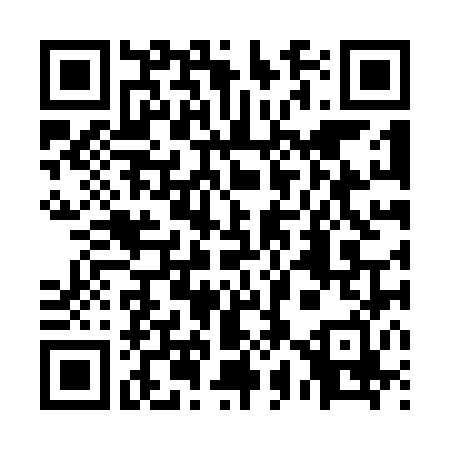Using psychology to learn psychology
Stage 1, Week 1 tutorial.

Tutor tasks
Did your tutees miss the tutorial? If so, use this link to send a pre-written email:
Aims
Build group familiarity
Set tutorial norms
Model how psychology helps move from hunches → evidence
Discuss what makes good evidence.
Practice concise writing
Reflect on study habits
Commit to a note-taking plan
Task 1: Introductions
Introductions:
Go round the group – ask names, where they are from etc.
Ask them to think of one non-psychology interest (but keep this to themselves for the moment)
Housekeeping:
Explain how tutorials run.
Attendance expectations.
Highlight resources like the DLE, timetable. Check all can access etc.
How to ask for help
- Check the handbook
- Check with peers
- Ask the staff member delivering a session (questions at the end)
- Ask a TARA in a workshop
- Ask their tutor
Task 2: Pictionary icebreaker
An icebreaker task that illustrates a speed/accuracy trade-off
Setup:
- In turn, each student draws/doodles their hobby/interest
- There are 90 seconds to draw
- Other students must guess what it is
- 1 point per correct guess
- Only one guess per student (if you guess wrong, you can’t guess again)
- Rotate around the group
Scoring can either be done individually (small groups) or by creating 2 teams first (will work better if there are 6 or more students).
Debrief
Tally up the scores and celebrate!
Ask: “When you guessed, what made you confident enough to shout out?”
- Did some students have a hunch, but kept quiet because they weren’t sure?
Foreshadow: This trade-off when making decisions is part of the reason we use statistics to analyse data. It helps us quantify uncertainty and make decisions.
Possible extension: discuss how this is similar to.a speed/accuracy trade-off in perception or decision making. Ask whether the person who shouted first actually had the most evidence, or just a lower threshold for action?
Link to next task:
The aim of the next task is to show students some ‘evidence’ and ask them to consider if it would lead them to change their own behaviour. If not, why not?
The example relates to their own study habits.
There are 2 follow-up practice tasks (on note taking and studying)
Task 3: “Should we write or type our notes in lectures?”
Discuss:
- Did students use handwritten or typed notes for their A-levels?
- Any other techniques they found useful in class?
Prompt:
- We/they already have opinions.
- In this task we look at an experimental study
- We want to decide: “is this evidence strong enough to change our mind, or our behaviour?”
Mueller & Oppenheimer, 2014 excerpt
Show this handout for students: Mueller & Oppenheimer, 2014 excerpt
Or show them this QR code and ask them to open it on their phones:

Briefly give time for students to skim the extract and figure.
Questions:
- Who were the participants?
- What did they do?
- What was measured?
- What was found?
[Answers]
- Princeton undergrads
- Randomised laptop vs longhand
- Watched 15-min TED talk, took notes “as usual.”
- After 30 mins, given factual and conceptual questions.
- Results:
- factual ≈ same performance
- conceptual = lower performance with laptops vs notes
How useful was the plot?
Discuss: What did the students learn by looking at the plot?
Prompts
What is a z-score? If they don’t know does it matter? Probably not… If time, extend with a discussion about how to read papers where they don’t understand all the technical details (hint: you can still think critically about studies, even when technical details are unfamiliar — academics do this all the time).
Where are the differences between groups? Are they big enough to matter? What do we mean by “matter”? How can we judge? Aim is to highlight that the effect size is what we care about. Contrast: we could be very sure about a tiny (and irrelevant) effect.
Why might there be a difference, conceptual > factual? Can they think of topics from A-level which might be relevant here? In the UK syllabus they might have covered:
- Depth of processing and impact on memory: do laptops encourage shallow verbatim transcription vs. longhand → elaborative rehearsal?
- Encoding specificity for retrieval cues: do handwritten notes create richer cues?
Should we change our habits?
How good and useful is this evidence?
Discuss
- Would you bet your exam results on this one study?
- Does it change things that the results could link to existing theory (e.g. depth of processing)? Or should we consider this data in isolation?
- What else would they want to know to make a decision?
Decide
- “Based on this evidence, what will you try over the next few weeks?
- Handwriting, laptop, or a mix?
Suggest
There are practice tasks on this site to encourage students to
Task 4: Wrap-up
Ask all students — they should all have their own answer
- What change (if any) they will make to note taking next week, and why?
- One strength/limitation of today’s evidence that stood out to them and influenced their decision.
Reminders
Regular Monday online “Briefings” (with Jeremy/Peter) will help them stay on track.
Pointer for next week: They will have an introduction to stats and research methods, so begin to learn how to analyse data like this and answer question like this more formally.